When you get a new rabbit, one of the first things you might want to do is give them a name. But have you ever wondered if rabbits actually know their name? Or if they can even understand human language at all? In this blog, we will explore some of the most common rabbit questions and offer some insight into what we know about rabbits to help you better understand these unique animals. Whether you are a seasoned rabbit owner or just thinking about getting one, we will be sure to have something that piques your interest! So let’s dive in and take a closer look at rabbits – the furry little stars of our homes and gardens.
Do rabbits know their name?
This is a bit of a tricky question. In most cases, rabbits do not know their name in the same way that humans do. They cannot understand the concept of a name and they may not always respond to their name if you call it out. However, they do seem to respond to certain sounds and tones of voice, which may indicate that they are able to differentiate between different words.
Can rabbits understand human language?
While rabbit brains are significantly smaller than human brains, some research has shown that they are capable of picking up on certain aspects of human speech. For example, rabbits can learn the meaning of certain words if you pair them with a specific action or behavior. This suggests that rabbit brains have the capacity for learning and associative thinking, just like humans.
So what does this mean for rabbit owners? While your rabbit may not be able to recognize its name exactly as you say it, they will likely pick up on other keywords and phrases over time. And by learning to associate these words with certain behaviors or actions, you can help your rabbit better understand what you are trying to communicate. So whether you’re teaching them tricks or just talking to them, always speak to your rabbit in a clear, friendly voice.
How do rabbits communicate?
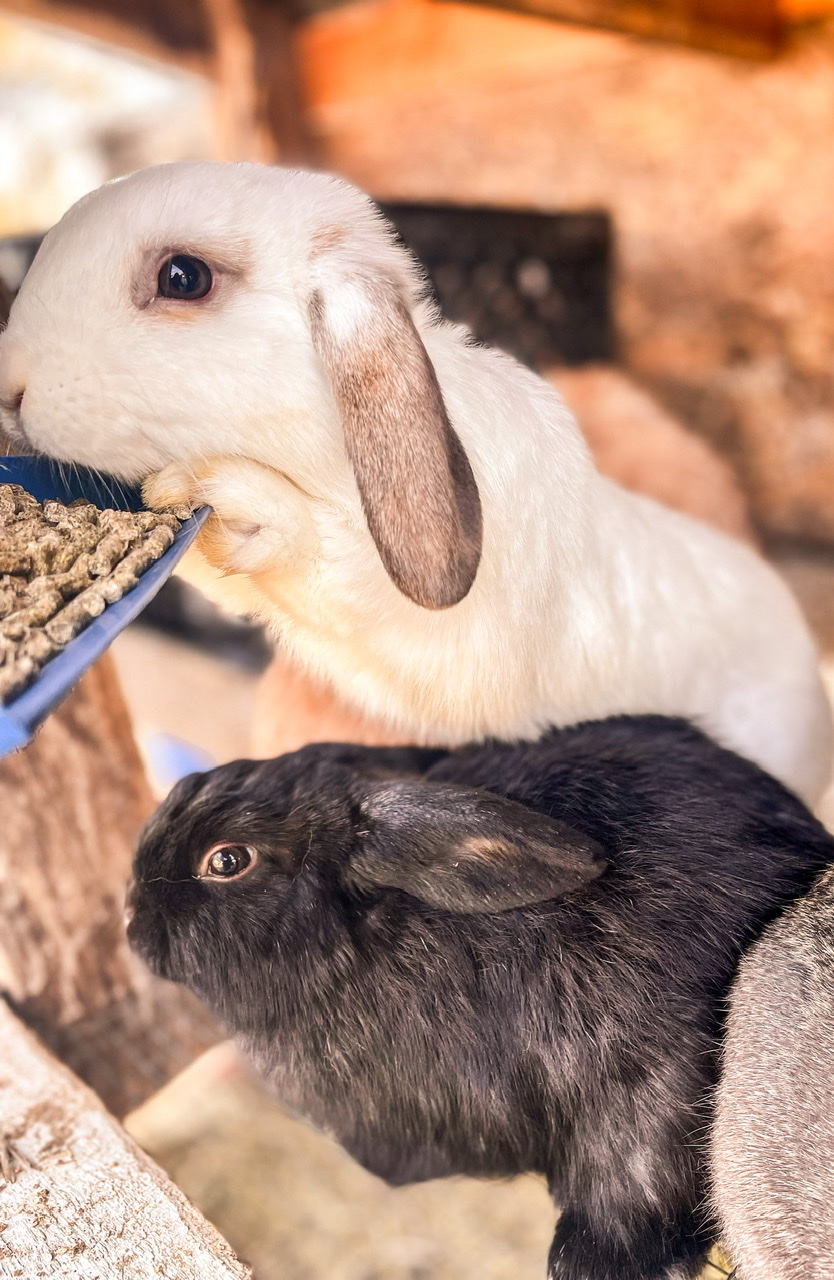
Rabbits communicate with each other in a variety of ways, including through vocalizations, body language, and touch. One common method of communication that rabbits use is thumping their feet, which is typically done to signal distress or fear. Rabbits will also make grunting or purring noises as a way of expressing contentment or excitement and may even bite if they feel threatened or provoked.
In addition to these more overt forms of communication, rabbits also rely on body language and touch to express themselves. They are able to convey a wide range of emotions using their facial expressions, ears, posture, and movements. By learning to pay attention to these non-verbal cues, you can better understand what your rabbit is trying to tell you and respond in ways that help to create a positive, trusting relationship.
Overall, understanding how rabbits communicate can be an important part of building a strong bond with your rabbit and helping them feel safe and happy. If you are interested in learning more about rabbit communication or want tips for building a better relationship with your bunny, there are many resources online that can provide guidance and support.
Are rabbits smart?
While rabbits might not be able to understand human language, this certainly doesn’t mean that they aren’t intelligent. In fact, there is a lot of research suggesting that rabbits are actually quite intelligent. They can learn tricks like hopping through hoops and playing games, can be litter trained, and many experts believe that their intelligence rivals that of cats and dogs.
Of course, each rabbit is different and some might be smarter than others. But overall, rabbits are definitely smart creatures who can learn new tricks and behaviors with some practice.
Can you be allergic to rabbits?
Yes, some people may be allergic to rabbits. In fact, symptoms of a rabbit allergy can include sneezing, itchy or watery eyes, coughing, and difficulty breathing. If you think that you might be allergic to your rabbit, it’s important to talk to your doctor and get tested for allergies. There are also a number of things you can do to reduce the risk of an allergic reaction, including keeping your rabbits out of your house and using air purifiers or HEPA filters in areas where your pet spends a lot of time. Overall, while having an allergy to rabbits is not ideal, there are steps you can take to minimize any negative effects on your health.
Do rabbits need companions?
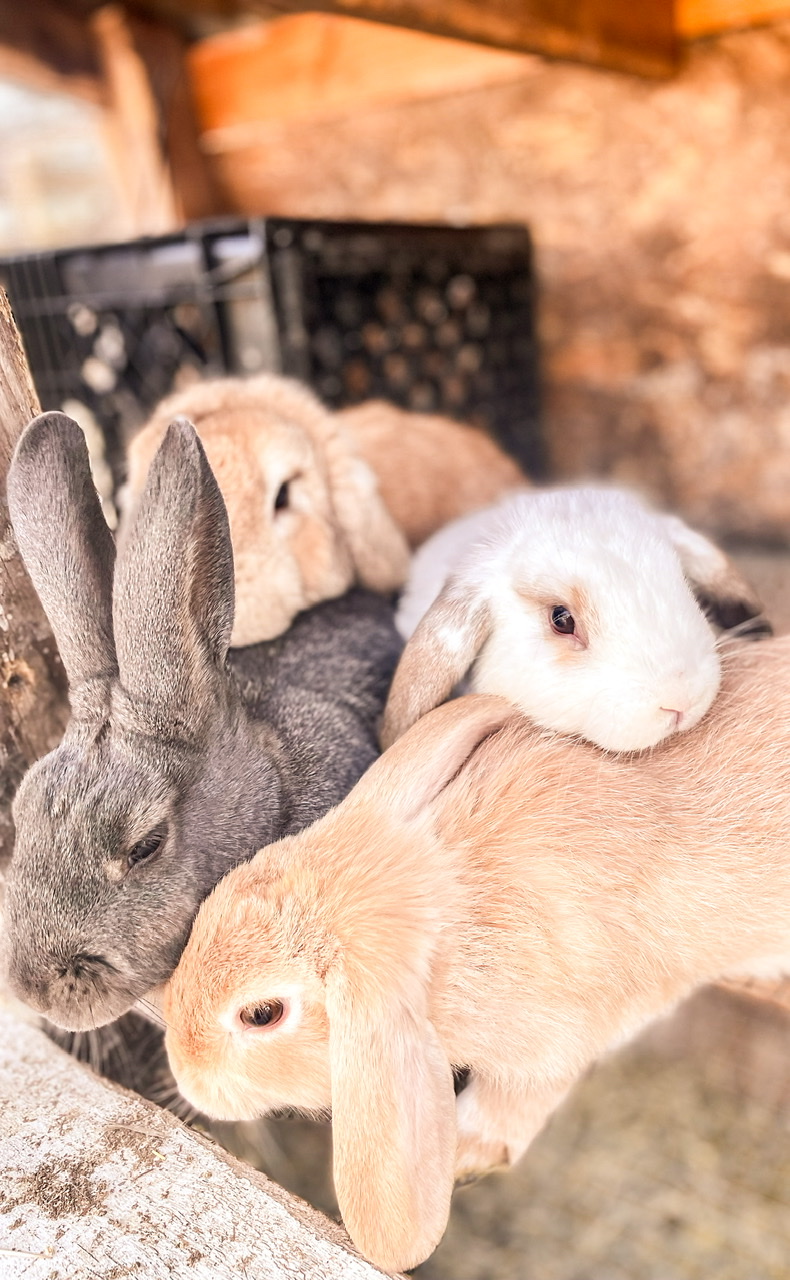
One common misconception about rabbits is that they are solitary animals who prefer to live alone. The truth is that many rabbits actually form close bonds with other rabbits and enjoy spending time with these companions.
In the wild, rabbits live in colonies. And even in captivity, rabbits can form strong social bonds and may become depressed or anxious if they do not have a companion to spend time with. If you are interested in getting a rabbit for yourself, it’s important to consider whether or not you will be able to provide them with the companionship they need. This might mean adopting more than one rabbit or even considering human companionship as an option.
If you have more than one rabbit in your home, it’s important to make sure they don’t become too competitive or aggressive towards each other. And while it might take a little bit of work to get your rabbits socializing in the beginning, with enough love and attention, they should eventually start to get along just fine.
So while rabbit companionship isn’t always necessary, it is definitely something that many rabbits thrive on and should be taken into consideration when deciding whether to get a rabbit. Remember, even if your rabbit isn’t very social at first, it’s easy to help them learn to love being around humans and each other with a little patience and affection.
Do rabbits like being held?
Some rabbits are naturally more skittish and may not enjoy being held for long periods of time. However, many other rabbits actually love being held and snuggled! It all depends on the individual rabbit and what sort of personality they have. If you want to know how your rabbit feels about being held, it’s usually best to start off slow by holding them for a few seconds at first. As your bond with your rabbit grows stronger over time, you should be able to hold them without issue for longer periods of time.
Overall, whether or not a rabbit enjoys being held comes down to their individual personality and preferences. Some may love it while others might hate it, so it’s important to pay attention to your rabbit’s body language and listen to what they are telling you. If you are ever in doubt, always consult a trusted veterinarian or rabbit expert for more advice.
Should I give my rabbit a bath regularly?
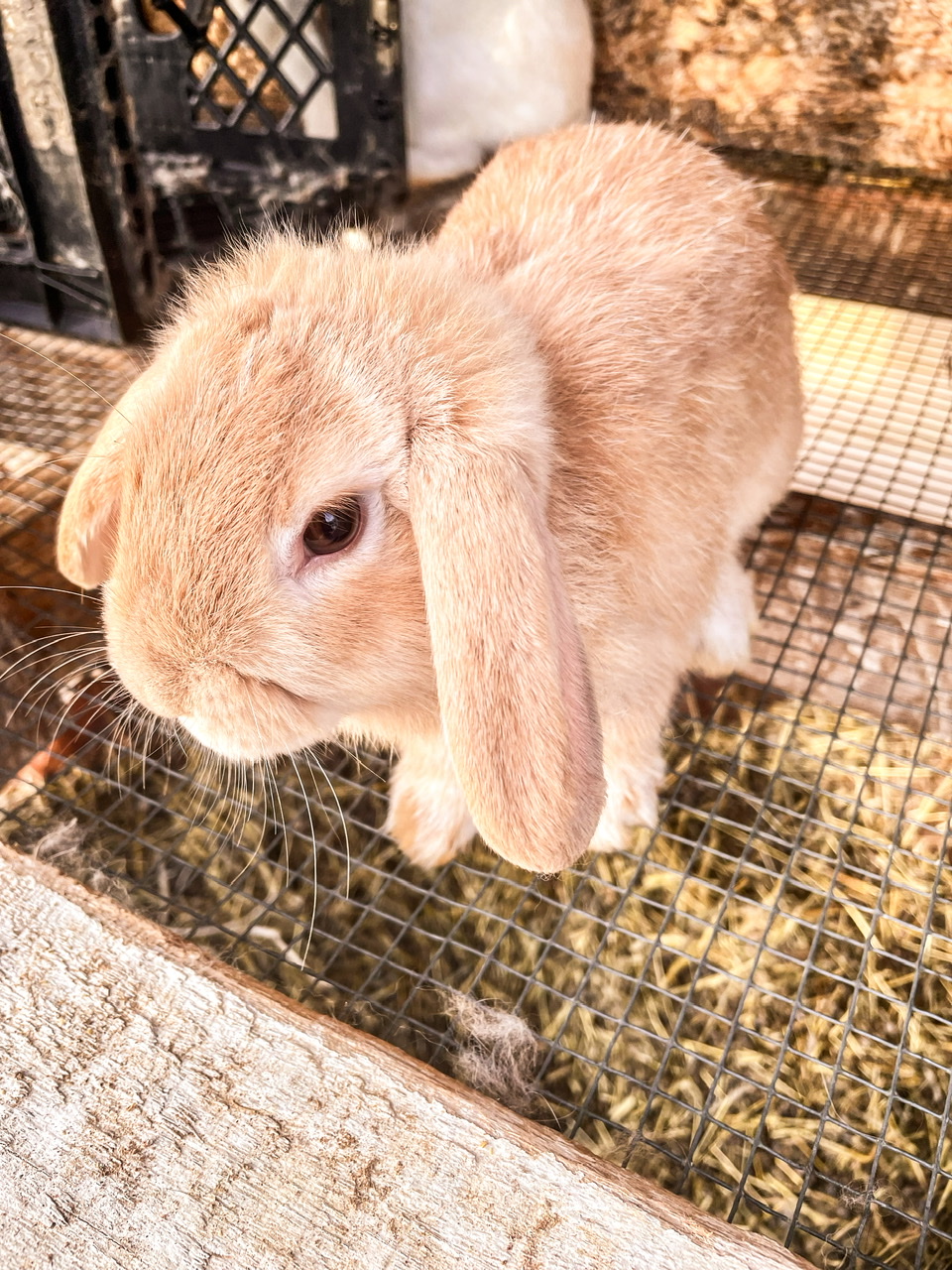
Pet rabbits should NOT be bathed regularly. In fact, giving a rabbit a bath can actually be quite stressful for them and can even lead to health issues if it isn’t done properly.
When rabbits get wet, they’re not only susceptible to cold-related illnesses like pneumonia and hypothermia, but their stress levels can increase so much that it can lead to the rabbit thrashing and cause spine damage.
If your rabbit ever becomes dirty or stinky, the best solution is usually to simply give them a good brushing or wipe them down with a damp towel. This should be enough to keep your rabbit clean and healthy without putting them through the stress of an actual bath.
If you’re looking for the best way to care for your pet rabbit, it’s usually recommended that you avoid baths and stick with simple grooming instead.
How do you tell if your rabbit is sick or in pain?
There are a few different signs that can indicate that your rabbit may be sick or in pain. One common symptom is changes in their normal behavior, such as becoming more lethargic or less social than usual. Other signs to watch out for include loss of appetite, excessive drooling, bumping into things, hiding more than usual, and changes in the consistency or color of their urine. If you notice any of these symptoms in your rabbit, it’s important to consult a veterinarian as soon as possible for proper diagnosis and treatment. Additionally, if you believe your rabbit is in pain but are unsure how to help them, always consult an expert for advice on what you can do to make them more comfortable. Overall, it’s crucial to stay alert and look out for any potential signs of illness or discomfort in your rabbit. This will help you provide the best possible care for them and ensure they live a long and happy life.
Should I watch how much I breed my rabbit?
Rabbits can have as many as 12 liters per year. They don’t have a set heat cycle, so they can pretty much breed at any time. A rabbit’s gestational period is around 30 days. While it’s natural for rabbit mothers to have multiple litters, there is such a thing as breeding too much.
If you breed your rabbit too often, it can lead to physical and emotional stress for the rabbit, as well as health problems like uterine cancer in females and testicular degeneration in males. Additionally, if you are also feeding your rabbit commercial diet pellets made for rabbits of all ages, overbreeding may lead to nutritional deficiencies that can negatively impact their overall health.
So if you’re considering breeding your rabbit, it’s important to do so responsibly and only when absolutely necessary. This means monitoring how often they mate, ensuring they get a high-quality diet rich in rabbit-specific nutrients, and seeking professional advice when needed. Ultimately, by following these simple guidelines, you can help ensure the health and happiness of your rabbit while also providing a positive example to other rabbit owners out there.
Can you litter train a rabbit?
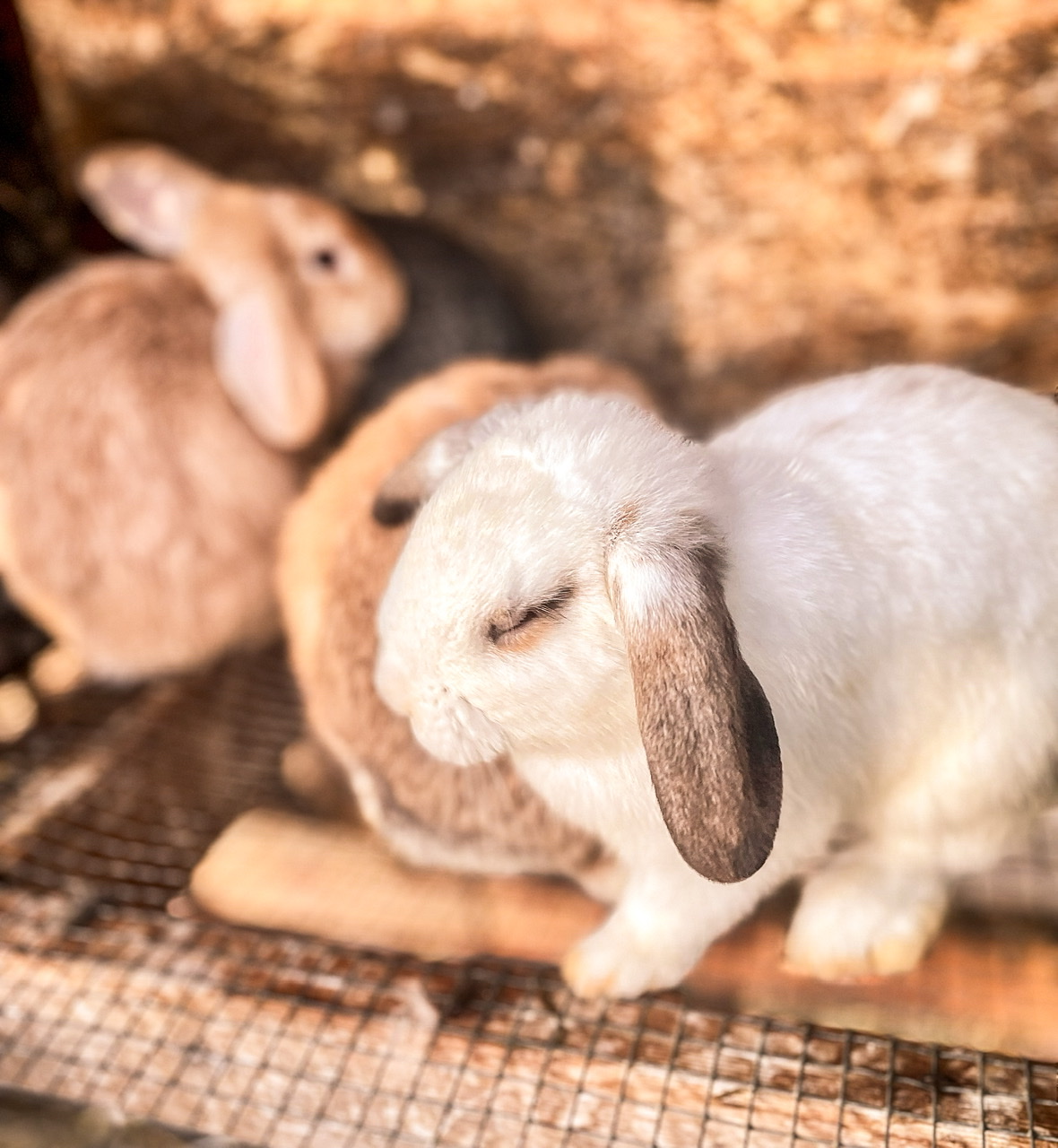
Yes, you can litter train a rabbit. It may take some time and patience, but it is definitely possible to teach your rabbit to use a specific litter box or corner of their cage for doing their business.
The first step is to set up a designated area where the litter box will be placed. Some people prefer using larger cages or play pens that have multiple levels, as this makes it easier for rabbits to hop down from the top level to go to the bathroom in the litter box below.
Once you have picked out an appropriate location for your rabbit’s litter box, you will need to gradually introduce them to using it. Start by placing some of the litter inside the box so they get used to seeing and smelling it there. Then slowly start to move the box to the chosen location, while placing some droppings inside. Once your rabbit is comfortable with this setup, you can begin to transition them away from using a corner of their cage and towards litter training full time. This may require some trial and error at first as rabbits can be picky about where they like to do their business, but with patience and persistence you should be able to successfully train your rabbit to use their litter box.
What are rabbits favorite foods?
Some common rabbit favorites include fresh vegetables like carrots, kale, and spinach. Leafy greens like romaine lettuce and arugula are popular along with small amounts of fruit like apples, bananas, melon, and berries. Additionally, many rabbit owners also choose to feed their rabbit high-quality rabbit pellets made for adult rabbits, which provide a well-rounded mix of key nutrients that can help keep their digestive system healthy.
Whether you’re trying to figure out what rabbit food is best, or looking for tips on how to keep your rabbit healthy and happy, there are plenty of resources out there that can help guide you along the way. And with a little dedication and patience, you’ll be able to provide your rabbit with everything they need to live a long and fulfilling life.
Rabbit questions
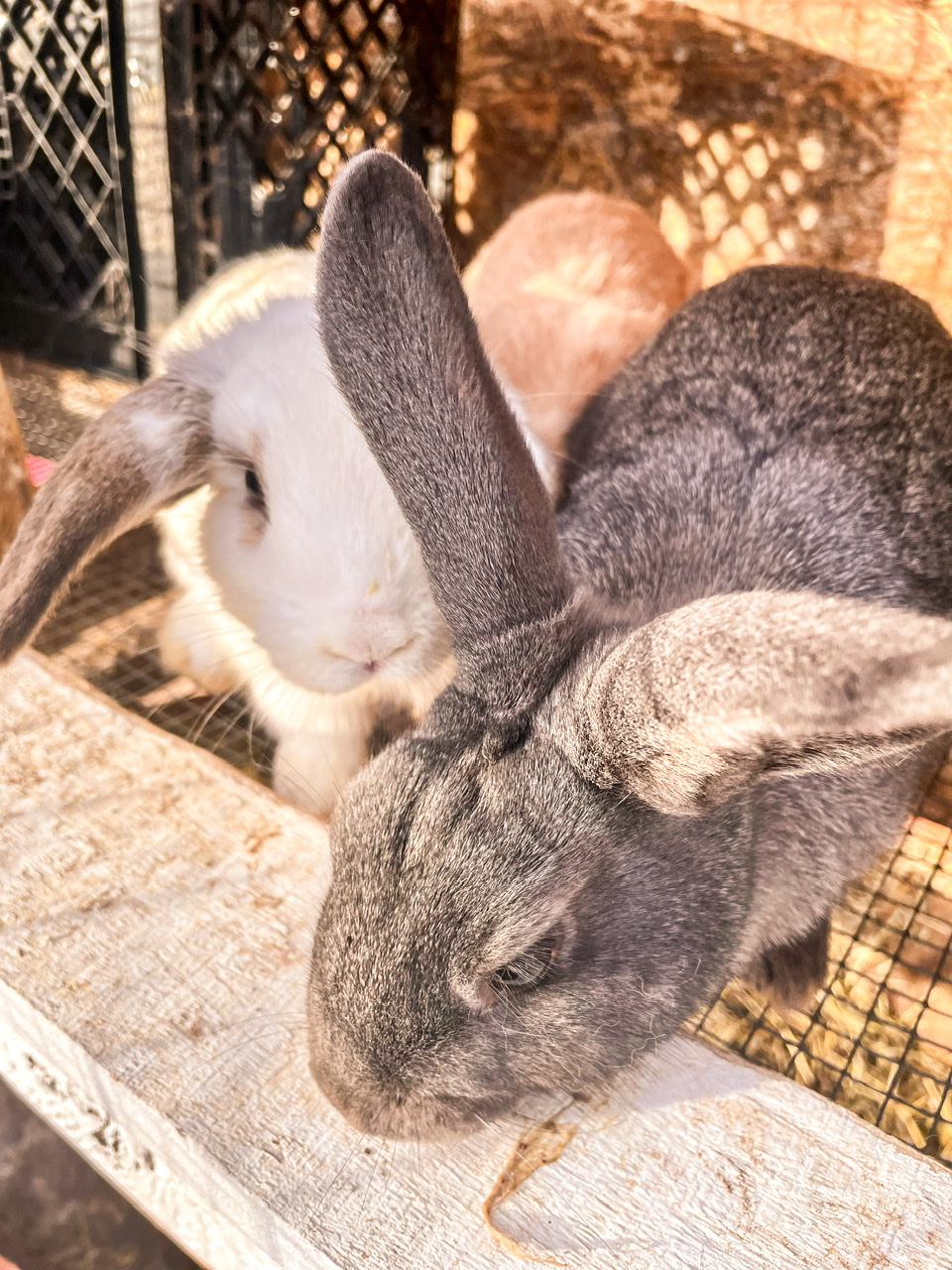
Whether you are considering rabbit breeding or just trying to teach your rabbit to use a litter box, it is important to approach these tasks with care and understanding. Rabbits are sensitive animals that require specialized nutrition and care, so always consult an expert for advice on how to best meet their needs. With the right knowledge and tools, however, you can help ensure your rabbit enjoys a happy and healthy life.



